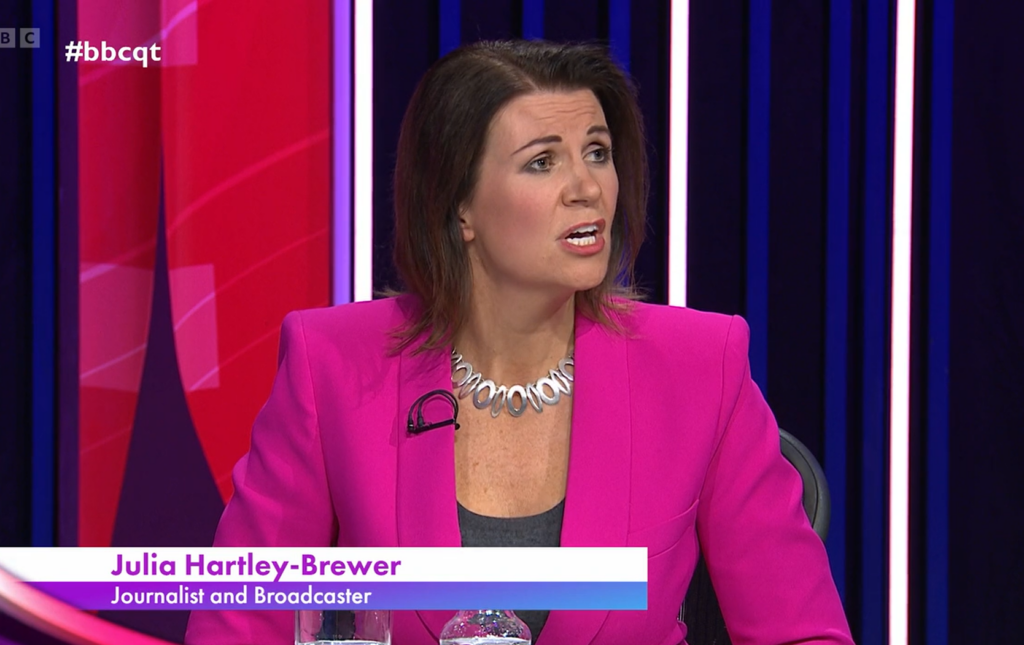First posted on Twitter on 4 November 2022
TalkTV host Julia Hartley-Brewer made several claims about climate change on a recent BBC Question Time.
Here’s the evidence for why she’s wrong – and more on her record of rejecting climate science.
Hartley-Brewer’s claim that the UN Intergovernmental Panel on Climate Change’s (IPCC) climate models have been “exposed as complete nonsense” is false.
In fact, climate models have accurately predicted global temperature rises. Observed warming tracks the forecasts. See this graphic from Carbon Brief:
Analysis: How well have climate models projected global warming? | @hausfath #archive
— Carbon Brief (@CarbonBrief) January 2, 2023
Read here: https://t.co/HWU1l4emvI pic.twitter.com/E6O9OosIlZ
You can read more about how climate models work in this helpful explainer by Skeptical Science.
Hartley-Brewer suggested warming up to 2.8 degrees would not “necessarily be an issue”.
But the IPCC has said more intense heat, rain, drought and fires are already damaging the lives of millions of people & ecosystems. More warming will make this worse.
Hartley-Brewer dismissed the UK’s record heatwave in 2022, saying: “It’s called weather.” The IPCC says It is “virtually certain” (99 to 100 percent) that “intensity and duration of heatwaves” has increased, and that “human-induced greenhouse gas” is the main cause.
And contrary to Hartley-Brewer’s claims, a study by the World Weather Attribution service suggests that human-caused climate change made the UK’s heatwave “at least 10 times more likely”.
Julia Hartley-Brewer has a history of rejecting climate science, attacking net zero policies and praising fossil fuels (See her profile in DeSmog’s climate disinformation database for more.)
We hope this thread is helpful next time she’s on BBC Question Time and other platforms discussing climate.
This blog is part of our DeBunk pilot project. You can read more about the project here.


